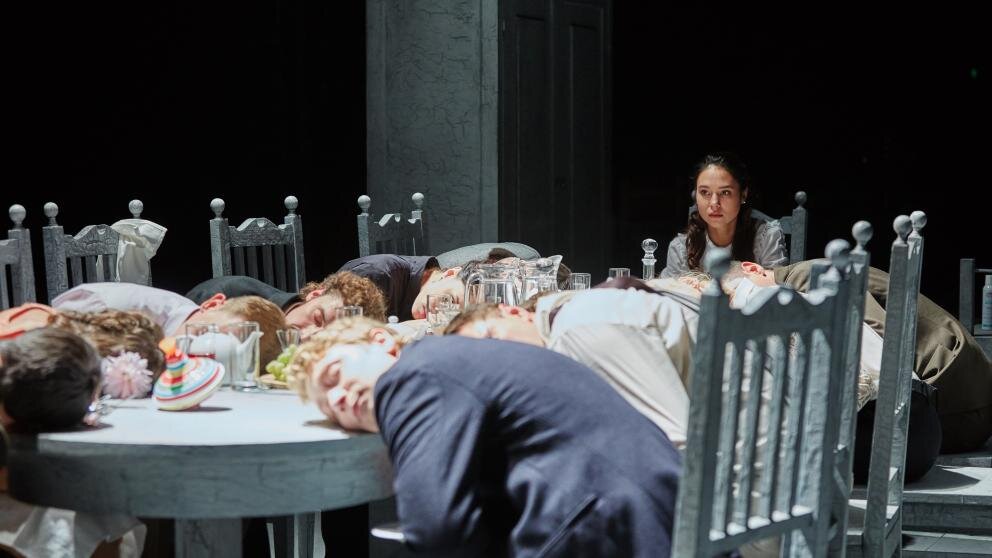Due to COVID, Sarasvati are offering many of their productions digitally via live stream as well as with limited in-person seating. I viewed this live-streamed - there is one more performance Sept 26.
This was initially planned as a full production, indoors in a theatre, however when COVID meant that was not possible, Sarasvati reworked the concept for the show to be a staged reading outdoors, using simple lighting, sound, and representative design. The actors wore mics, which allowed of course for the live stream audio pickup, but also for the integration of sound design and effects on the live voices.
Elena Anciro and Ray Strachan had the challenging task of portraying intense love and loss, while not coming close together — speaking to one another from the tops of three picnic tables set apart from one another. Their connection is believable and meaningful, despite the physical distance — their early meeting scenes charming, and the flashbacks to arguments convincing.
The script hops around in time, which at first is challenging to follow - there is a crisis, there is a meet-cute (which repeats and re-shapes nicely) and there is the current moment. These intersperse through the script, hopping in time, which in a reading scenario is difficult. At times it felt the script would have benefited from more clarity on this front; the most effective scenes were the ones where they stayed in place for longer, and where the blend into a new time was a subtle continuation of the conversation rather than a cinematic hard cut. This may have also benefited the overall pace of the script, which began to feel less nuanced around the middle section.
Production-wise, it was nice to see the use of a mix of camera angles for the live stream. A limitation, of course, was that the harsh lighting for an outdoor production made it difficult to see the actors faces at times. Similarly, early introductions of sound effects on actors were a challenge to discern whether this was a poor connection, or an intentional design aspect. All in all, this raised questions for me (in a good way) about how to stage work for in-person and filmed streaming simultaneously, and appropriately leverage the mediums.



















